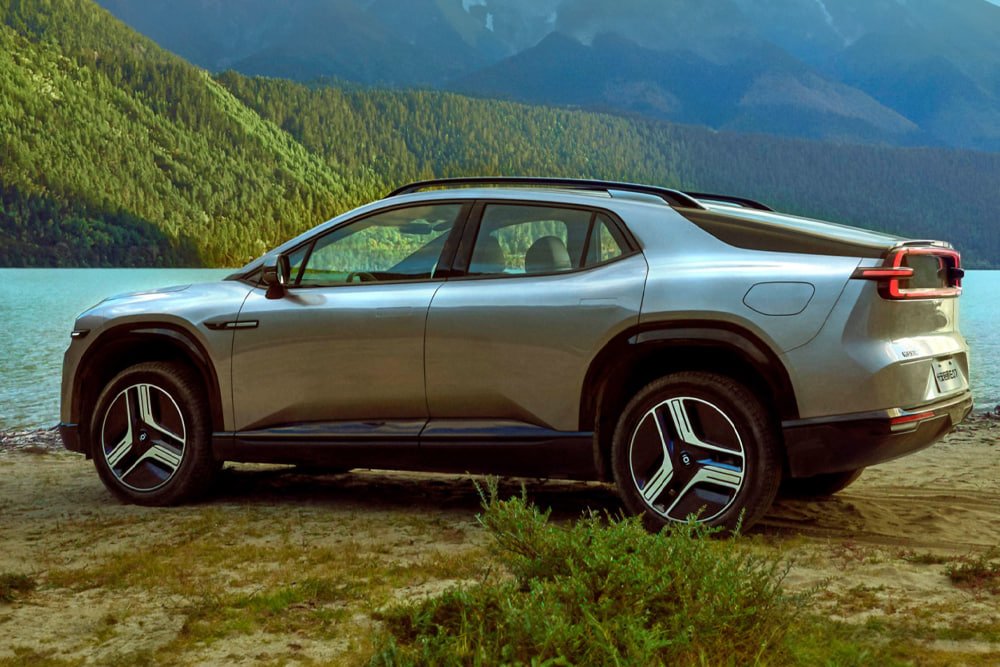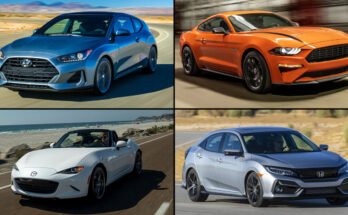Understanding the SUV Market
The SUV (Sport Utility Vehicle) market has experienced remarkable growth in recent years, evolving to meet the demands of diverse consumer preferences. Initially, SUVs were designed primarily for off-road capabilities. Still, they have become increasingly popular for urban driving due to their spacious interiors, higher seating position, and perceived safety benefits. This shift in consumer preference has prompted automakers to develop a range of SUVs that cater to various market segments, leading to a clear distinction between luxury and budget variants.
Luxury SUVs are defined by their upscale features, superior performance, and premium materials. These vehicles often come equipped with advanced technology, such as high-end infotainment systems, premium audio systems, and driver-assistance features. In addition to comfort and luxury, these SUVs deliver powerful engines and superior handling, appealing to consumers seeking a blend of performance and prestige. Brands like BMW, Mercedes-Benz, and Audi exemplify the luxury segment with models that prioritize quality, comfort, and cutting-edge design.
On the other hand, budget SUVs emphasize affordability and practicality, often offering ample space and versatility without the high-end features found in luxury models. These vehicles are typically designed for families or individuals seeking an economical transportation solution. While they may lack some of the premium amenities of their luxury counterparts, budget SUVs still provide a reliable driving experience with sufficient power and cargo space. Popular models in this category include the Honda CR-V, Ford Escape, and Toyota RAV4, known for their overall value and practicality.
Understanding the distinctions between luxury and budget SUVs is essential for consumers navigating the market. Current trends indicate a growing demand for SUVs that combine the best of both worlds, resulting in a new class of mid-range vehicles that aim to deliver features traditionally found in luxury models at a more accessible price point.
Performance Comparison: Luxury vs. Budget SUVs
When assessing the performance of luxury and budget SUVs, a comprehensive analysis of various parameters is essential. Engine types, horsepower, torque, handling capabilities, and overall driving experiences constitute the core attributes that distinguish these two categories. Luxury SUVs, often equipped with advanced powertrains, typically offer superior horsepower and torque figures compared to budget options. For instance, models like the BMW X5 and Mercedes-Benz GLE provide robust engine choices that can deliver upwards of 400 horsepower, ensuring thrilling acceleration and top speeds.
Conversely, budget SUVs like the Honda CR-V and Ford Escape may boast a different horsepower level but offer adequate performance for everyday driving. These vehicles often have efficient four-cylinder engines, delivering 150-250 horsepower, sufficient for typical urban driving scenarios. Regarding torque, which is crucial for towing and off-road capabilities, luxury SUVs frequently outperform budget models. For instance, with its performance-oriented design, the Lexus RX can achieve impressive torque figures that allow for greater towing capacities than vehicles in the budget segment.
Handling is another significant factor; luxury SUVs feature sophisticated suspension systems that enhance ride quality and cornering abilities. The Audi Q7, for example, stands out with its precise steering and adaptive air suspension, providing a refined driving experience. On the other hand, budget SUVs may prioritize affordability, often sacrificing some handling capabilities. However, models like the Kia Sportage have made great strides in offering acceptable ride dynamics while maintaining budget-friendly pricing.
Off-road capabilities also warrant comparison; luxury SUVs often come with advanced all-wheel-drive systems and robust construction, enabling them to tackle more challenging terrains. In contrast, budget SUVs are generally designed for light off-road use, focusing on daily commutes rather than rugged adventures. Thus, while performance metrics indicate a clear separation between luxury and budget SUVs, both categories offer distinct advantages tailored to varying consumer preferences.
Price Breakdown: Cost of Ownership and Value
When purchasing a vehicle, understanding the price breakdown is essential for making an informed decision, especially when comparing luxury and budget SUVs. The initial purchase price undoubtedly plays a significant role; luxury SUVs typically command higher sticker prices than their budget counterparts. For instance, luxury brands often start at over $40,000, while budget SUVs range from $20,000 to $35,000. However, the initial investment is just the beginning of the financial picture.
Long-term costs, including maintenance, insurance, and fuel efficiency, drastically affect the overall cost of ownership. Luxury SUVs often entail higher insurance premiums due to increased value and repair costs. Additionally, while luxury models might offer advanced technologies and higher performance, these features can lead to more expensive repairs and upkeep. Budget SUVs, on the other hand, tend to have lower maintenance costs and insurance rates, offering a more economical choice for long-term ownership.
Fuel efficiency can also differ significantly between these two categories. Many budget SUVs are designed with fuel economy in mind, allowing consumers to save on gas over time. Conversely, luxury SUVs may prioritize power and performance, sometimes at the expense of fuel efficiency. The day-to-day running costs should be carefully evaluated when considering the overall value proposition.
Other factors contributing to the financial implications include resale value and warranty offerings. Luxury SUVs generally depreciate faster, although they might have a more substantial initial resale value. In contrast, budget SUVs often hold their value better, which can be advantageous when selling or trading in the vehicle. Financing options for both segments can also vary, influencing monthly payments and overall affordability. Thus, a comprehensive assessment of initial costs and long-term expenses is vital for prospective buyers to determine which SUV segment aligns better with their financial goals.
Making the Right Choice: Which SUV is Right for You?
Choosing the right SUV requires carefully evaluating various factors that align with your needs and preferences. For many, the primary consideration is budget. Luxury SUVs typically feature higher price points due to premium materials, advanced technology, and improved performance specifications. Conversely, budget SUVs offer competitive functionalities at a more accessible price, making them appealing for cost-conscious buyers.
Understanding your lifestyle is critical in making this decision. For families, an SUV’s size and safety features can dictate whether a luxury or budget vehicle is suitable. Parents may prioritize spacious seating arrangements, ample cargo capacity, and robust safety ratings. Additionally, for everyday outdoor activities, look for SUVs that provide off-road capabilities or can accommodate sports equipment. In this case, luxury and budget models can deliver varying performance depending on the desired application.
Furthermore, technology plays an integral role in the modern driving experience. If you value advanced connectivity and entertainment features, luxury SUVs are often equipped with cutting-edge systems that can enhance daily commutes and long trips. Yet, many budget SUVs today are catching up, providing many technological amenities. Assessing which features are most important to you—including infotainment systems, driver-assistance technologies, and comfort amenities—can further streamline your search.

Before making a final decision, it is prudent to test-drive multiple models. A firsthand experience allows you to evaluate each SUV model’s comfort, handling, and overall fit. Comparisons of specific features and customer reviews can also provide invaluable insights. By weighing these considerations carefully, you can find the SUV that best fulfils your unique requirements while adhering to financial constraints.




